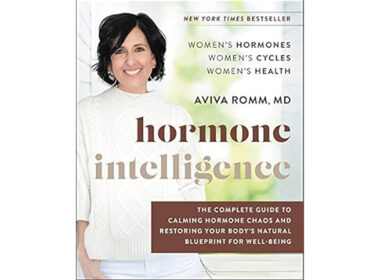My family and I attended San Antonio’s renowned Martin Luther King, Jr. March for the first time this year. I was fascinated by the sheer variety of people marching side by side. It provided me a window of time to reflect on human dignity, how social structures affect different groups, and how numerous are the ways that people seek equality and freedom.
I thought of MLK’s popular phrase, “I have a dream,” when I read “Sex and Love and Birth Control” by Pamela Barnes, President and CEO of EngenderHealth.
In her soaring Valentine’s Day ode to sex, Barnes sings the praises of contraception as if it is the singular arbiter of women’s ability to enjoy sex and determine their futures. On the tail of that tribute, she shares her dream for women in developing countries, implying that increased access to contraception would help them determine their futures.
To be sure, contraception has radically reoriented our society’s approach to sex. But there seem to be a few important facts that Barnes fails to acknowledge:
1) Contraception isn’t foolproof. Just ask the 50+ percent of women seeking abortions who claimed to be using contraception when they got pregnant. (According to the Guttmacher Institute, among women seeking abortions, 54% reported that they had been using a contraceptive method when they became pregnant.)
2) Not every form of contraception prevents disease. The Pill doesn’t. Implants and IUDs don’t. Essure does not. Condoms can prevent some diseases…but they’re not foolproof either. The reality is, some forms of popular contraception can actually increase the risk of cancer and other health problems. Maybe some women see the potential to avoid pregnancy as a big enough benefit to outweigh these risks. But I would wager many women are not aware of these risks at all. And that alone is a problem.
3) Contraception (and I’m speaking here specifically about contraception used to avoid pregnancy, not hormonal contraceptives used to ease the symptoms of gynecological health problems) treats women’s fertility as a disease. Talk about inequality and a lack of acceptance! As a woman who wants to see women accepted in society as women, this is perhaps my biggest turn-off to contraception. Contraception turns off my healthily functioning reproductive system. It hijacks my system — it treats my body as something that needs to be controlled, co-opted, avoided and/or suppressed in the interest of pursuing momentary pleasure. Is this really the best option out there?
4) The good news is, there IS another way. Fertility awareness-based methods respect the healthy reality and power of both female and male fertility, do nothing to alter or negate it (chemically or otherwise), and encourage men to take an active role in regulating births — a burden that is typically on the woman’s shoulders. (Plus, used correctly, fertility awareness can be just as effective as the Pill!) At their best, fertility awareness-based methods require and generate more intimacy, more cooperation and communication between the persons involved, and more respect for women as women. I don’t know about you, but that sounds like potential for real freedom and empowerment to me. I’ve heard it said that there is nothing better than “unprotected” sex with someone who accepts all of you — even your fertility. I would have to agree.
Barnes’ dream is to spread the news that contraception allows couples to have more sex and the freedom to enjoy it. But her effusive praise of contraception glosses over some important facts and options that men and women alike should be aware of before they head to the bedroom.
So what would it look like if we honestly took all these things into account? Well, let me share my dream:
- I have a dream that around the world, every woman will be truly free to say “yes” to sex with a respectful and responsible man who cares for her — all of her — enough to be attentive to not only her sexual needs but to how she is designed as a woman. This includes understanding and respecting the way she cycles through both fertile and infertile phases, and how those phases affect her daily life — beyond just whether or not she can get pregnant.
- I have a dream that men and women alike will be educated in fertility awareness in age-appropriate ways from the time they enter puberty, and that men and women everywhere will be encouraged and expected to respect each other as individual persons with gifts and goals and dreams for life instead of looking at one another merely as objects to satiate their sexual desires.
- I have a dream that fathers will join mothers more directly in bringing up the next generation so that women don’t have to be in a lonely and fearful place when they get pregnant.
- I have a dream that society will uphold women’s particular gifts — including their ability to bear children — as goods worthy of full accommodation into society instead of pesky features that should be tolerated at best, and manipulated for financial and/or pleasurable prospects at worst.
- I have a dream that more couples will be able to enjoy well-rounded relationships so that when it comes to their sex lives, they won’t feel pressured to routinely and forcibly block out, ignore, or compromise either partner’s health, desire for commitment, or fertility.
- I have a dream that society will see healthy, responsible sex as a good for the person along the same lines of a well-balanced and maintained diet (after all, moderation and pleasure are not mutually exclusive!), and that pop culture would stop intimating that in order to be “fun” or “pleasurable,” sex has to have something dirty or forbidden, kinky, unrestrained or animalistic about it.
- I have a dream that women’s healthcare will take on the aspects of genuine healthcare — that more medical professionals and women will be educated in protocols and procedures and a mindset that strive for restoration of health and proper functioning, instead of a mere masking of or management of symptoms.
I think Barnes’ appreciation for the pleasure of sex and her concern for women in developing countries are good — I sympathize with both. But I think she is a bit short-sighted in her blanket acceptance of contraception as the fix-all. I invite her to dream bigger — for Americans, and for the whole world.
This article was last updated on April 6th, 2023 to include links to updated effectiveness statistics for fertility awareness-based methods.







